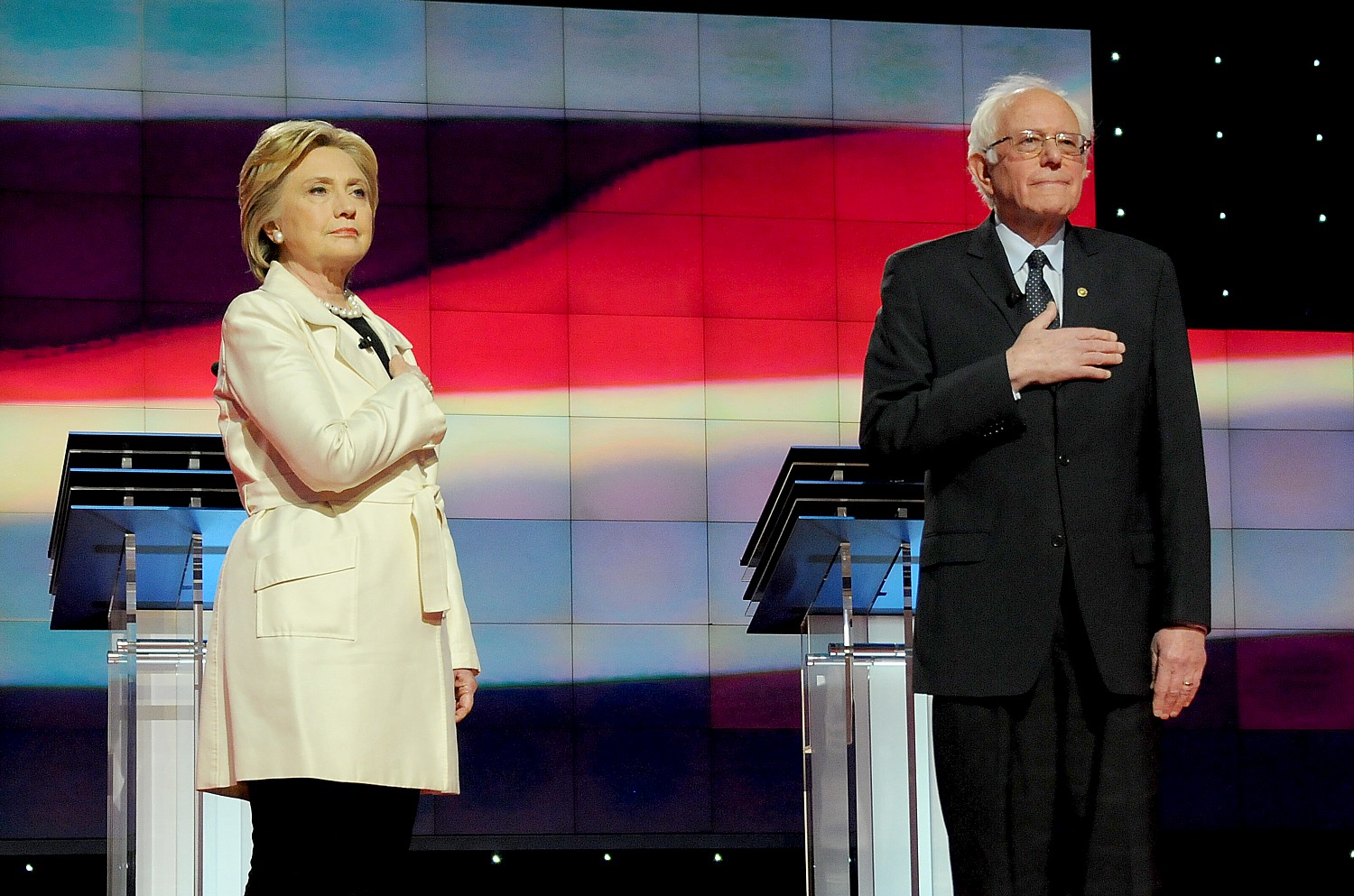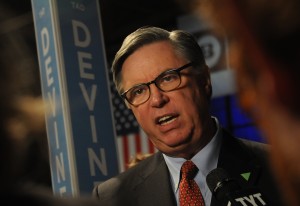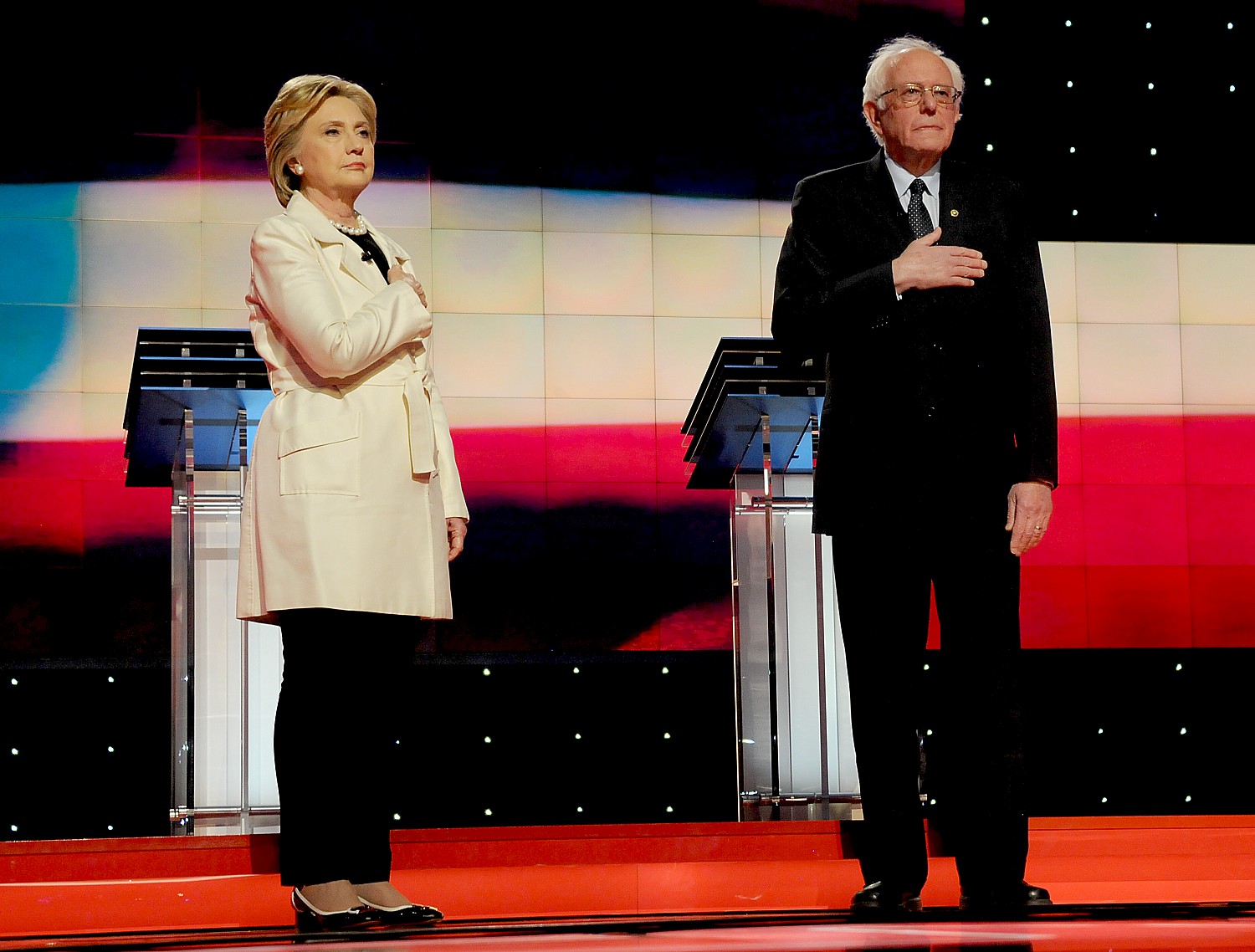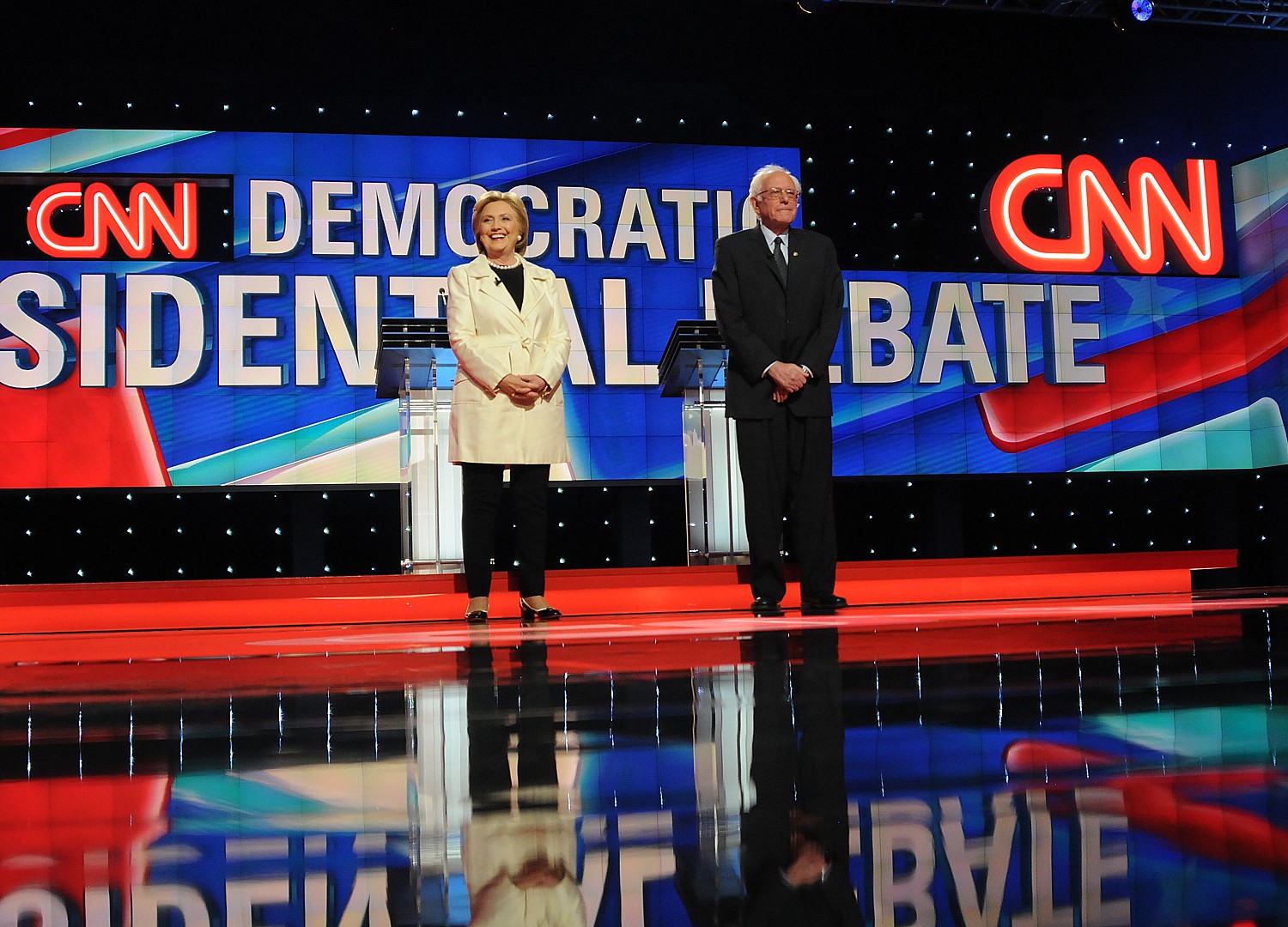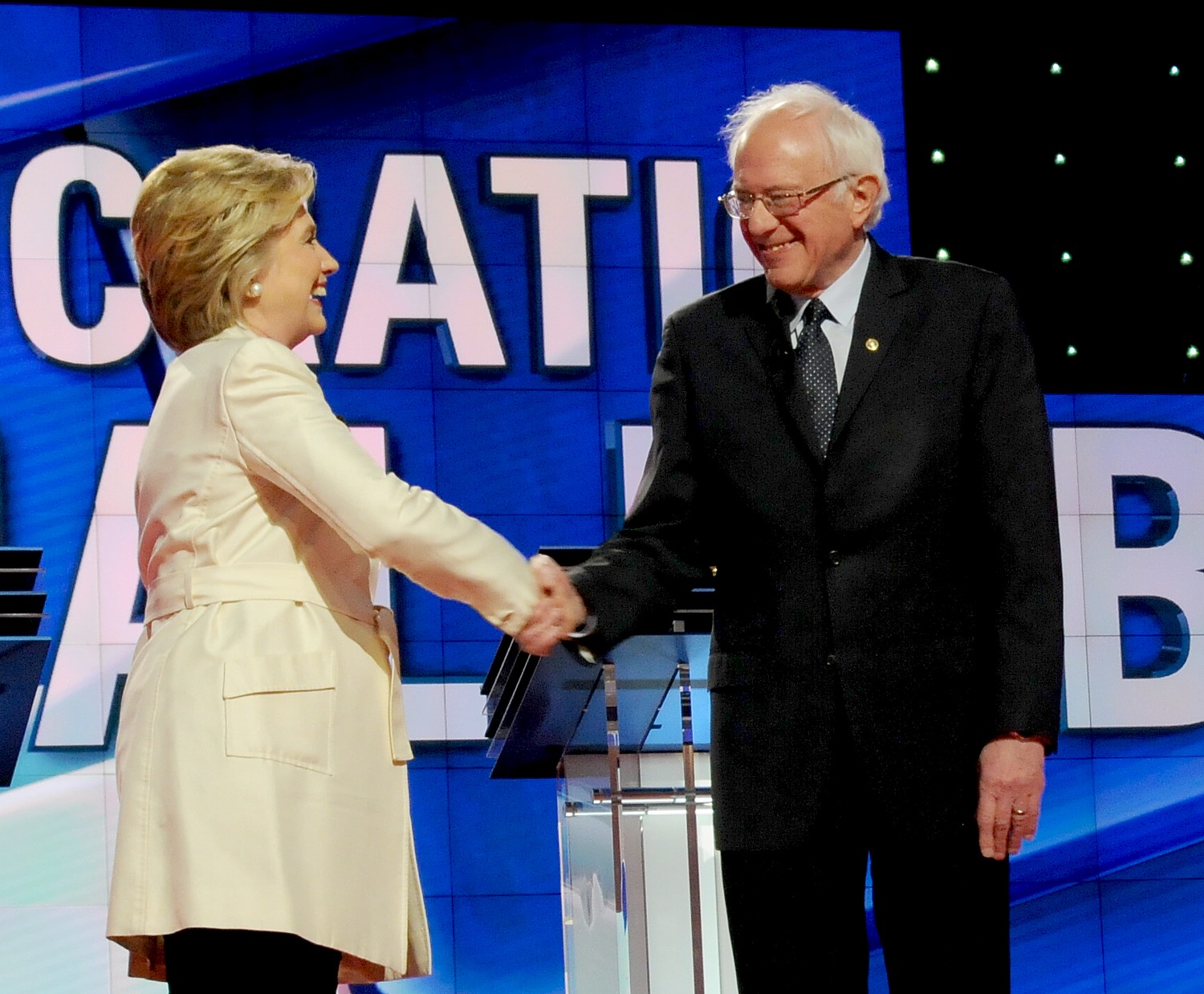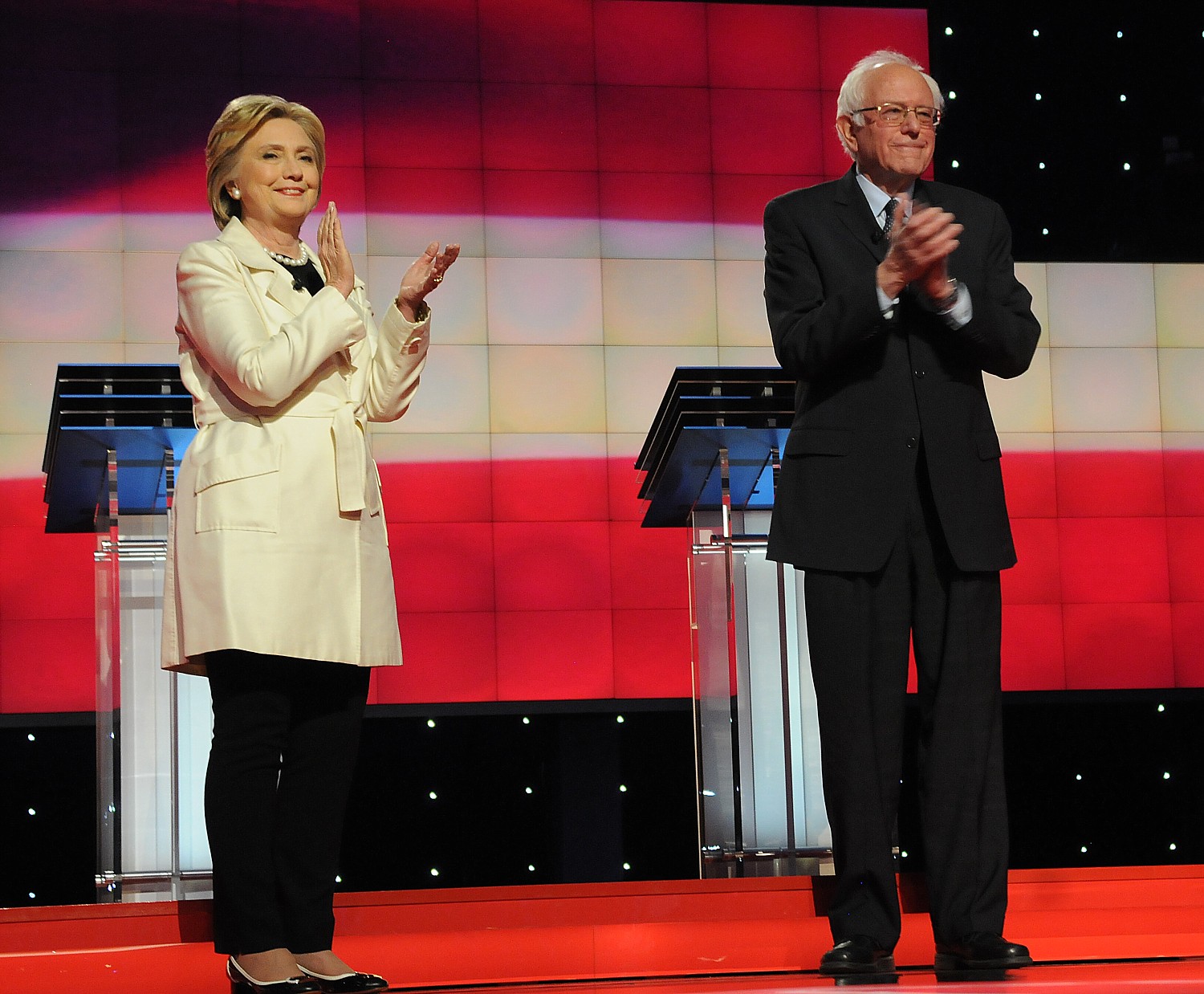
Ahead of the April 19 New York State Primary, the gloves came off between the two contenders for the Democratic presidential nomination, former Secretary of State and New York Senator Hillary Clinton and Vermont Senator Bernie Sanders, at what is being called “The Brooklyn Brawl” – the Democratic Debate at the Brooklyn Navy Yard.
The confrontation was the most contentious to date, but still substantive with both candidates making strong arguments on major issues.
Here are annotated highlights from the “Brooklyn Brawl” – the debate between Democratic contenders for the nomination for president, former Secretary of State and New York State Senator Hillary Clinton and Vermont Senator Bernie Sanders, based on a transcript provided by CNN, the news organization that hosted the debate, April 14.
In this section, the candidates debate universal health care, free college, the US Supreme Court, and for the first time in all the debates, what the Supreme Court means for women’s reproductive rights.
Universal Health Care, Free College, Supreme Court
Senator Sanders, you’re promising health care and free college for all, and those plans would be met with both political and practical challenges. The nonpartisan Committee for a Responsible Federal Budget says your initiatives would cost up to $28 trillion and, even after massive tax increases, that would add as much as $15 trillion to the national debt. How is this fiscally responsible?
SANDERS: Well, first of all, I disagree with that study. There are many economists who come up with very, very different numbers.
For example, we are the only country, major country on Earth, that does not guarantee health care to all people, and yet we end up spending almost three times what the British do, 50 percent more than the French. My proposal, a Medicare-for-all, single-payer program, will save (APPLAUSE) will save middle-class families many thousands of dollars a year in their health care costs. Public colleges and universities tuition free? Damn right. That is exactly what we should be doing. (APPLAUSE)
“And I’d pay for that — I’d pay for that by telling Wall Street that, yeah, we are going to have a tax on Wall Street speculation, which will bring in more than enough money to provide free tuition at public colleges and universities and lower the outrageous level of student debt.
“Wolf, we have seen in the last 30 years a massive transfer of wealth from the middle class to the top 0.1 percent. The establishment does not like this idea, but, yes, I am determined to transfer that money back to the working families of this country. (APPLAUSE)
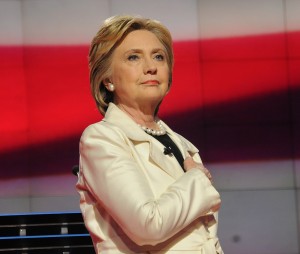
CLINTON: Well, again — again, I absolutely agree with the diagnosis, the diagnosis that we’ve got to do much more to finish the work of getting universal health care coverage, something that I’ve worked on for 25 years. Before there was something called Obamacare, there was something called Hillarycare. And we’re now at 90 percent of coverage; I’m going to get us to 100 percent.
“And with respect to college, I think we have to make college affordable. We are pricing out middle-class, working, and poor families. There’s no doubt about that.
But I do think when you make proposals and you’re running for president, you should be held accountable for whether or not the numbers add up and whether or not the plans (APPLAUSE) are actually going to work.
“And just very briefly, on health care, most of the people who have analyzed what Senator Sanders put out — remember, he had a plan for about, I don’t know, 18, 20 years. He changed in the middle of this campaign. He put out another plan. People have been analyzing the new plan. And there is no doubt by those who have analyzed it, progressive economists, health economists, and the like, that it would pose an incredible burden, not just on the budget, but on individuals. In fact, the Washington Post called it a train-wreck for the poor. A working woman on Medicaid who already has health insurance would be expected to pay about $2,300.
“The same for free college. The free college offer — you know, my late father said, if somebody promises you something for free, read the fine print. You read the fine print, and here’s what it says.
“The fine print says this, that it will — the federal government will cover two-thirds of the cost and require the states, even those led by Republican governors to carry out what the remaining one-third of the cost.”
SANDERS: We are not a country that has the courage to stand up to big money and do what has to be done for the working families of the country. (APPLAUSE)
CLINTON: We have a difference of opinion. We both want to get to universal health care coverage. I did stand up to the special interests and the powerful forces, the health insurance companies and the drug companies. (APPLAUSE)
“And perhaps that’s why I am so much in favor of supporting President Obama’s signature accomplishment with the Affordable Care Act, because I know how hard it was to get that passed, even with a Democratic Congress. So rather than letting the Republicans repeal it or rather starting all over again, trying to throw the country into another really contentious debate, let’s make the Affordable Care Act work for everybody let’s get to 100 percent coverage, let’s get the cost down, and let’s guarantee health care.”
Social Security
BLITZER: Secretary, let’s talk about Social Security, another critically important issue. Senator Sanders has challenged you to give a clear answer when it comes to extending the life of Social Security and expanding benefits. Are you prepared to lift the cap on taxable income, which currently stands at $118,500? Yes or no, would you lift the cap?
CLINTON: I have said repeatedly, Wolf, I am going to make the wealthy pay into Social Security to extend the Social Security Trust Fund. That is one way. If that is the way that we pursue, I will follow that.
“But there are other ways. We should be looking at taxing passive income by wealthy people. We should be looking at taxing all of their investment.
“But here’s the real issue, because I — I’ve heard this, I’ve seen the reports of it. I have said from the very beginning, we are going to protect Social Security. I was one of the leaders in the fight against Bush when he was trying to privatize Social Security.
“But we also, in addition to extending the Trust Fund, which I am absolutely determined to do, we’ve got to help people who are not being taken care of now. And because Social Security started in the 1930s, a lot of women have been left out and left behind.
“And it’s time that we provide more benefits for widows, divorcees, for caregivers, for women who deserve more from the Social Security system and that will be my highest priority.” (APPLAUSE)
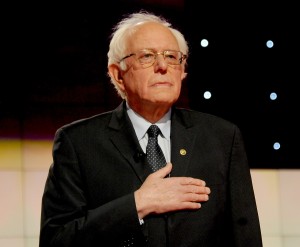
SANDERS: Now, we’ve got — here is the issue. Your answer has been the same year after year. In fact, the idea that I’m bringing forth, I have to admit it, you know, it wasn’t my idea. It was Barack Obama’s idea in 2008, the exact same idea. (APPLAUSE)
“He called for lifting the cap, which is now higher — it’s at 118 — and starting at 250 and going on up. If you do that, you’re going to extend the life of Social Security for 58 years. You will significantly expand benefits by 1,300 bucks a year for seniors and disabled vets under $16,000 a year. What’s wrong with that? Are you prepared to support it?
CLINTON: I have supported it. You know, we are in vigorous agreement here, Senator.
‘You know, we’re having a discussion about the best way to raise money from wealthy people to extend the Social Security Trust Fund. Think about what the other side wants to do. They’re calling Social Security a Ponzi scheme. They still want to privatize it. In fact, their whole idea is to turn over the Social Security Trust Fund to Wall Street, something you and I would never let happen.
“I’ve said the same thing for years. I didn’t say anything different tonight. We are going to extend the Social Security Trust Fund. There is still something called Congress. Now, I happen to support Democrats and I want to get Democrats to take back the majority in the United States Senate so a lot of — a lot of what we’re talking about can actually be implemented when I am president.”
SANDERS: — maybe I’m a little bit confused.
“Are you or are you not supporting legislation to lift the cap on taxable income and expand Social Security for 58 years and increase benefits…”
CLINTON: I am…
SANDERS: — yes or no?
CLINTON: I have said yes, we are going to pick the best way or combination…
SANDERS: Oh, you — ah. (APPLAUSE) (BOOS)
SANDERS: OK.
CLINTON: — or combination of ways… (BOOS)
CLINTON: — you know… (BOOS)
CLINTON: — it — it’s all — it’s always a little bit, uh, challenging because, you know, if Senator Sanders doesn’t agree with how you are approaching something, then you are a member of the establishment. Well, let me say then…
SANDERS: Well, look (APPLAUSE)
CLINTON: — let me say this (APPLAUSE)
CLINTON: — we are going to extend the Social Security Trust Fund. We’ve got some good ideas to do it. Let’s get a Congress elected that will actually agree with us in doing it.
SANDERS: Yes, Secretary Clinton (CROSSTALK) you are a member of the establishment.
Supreme Court
Secretary Clinton, regarding President Obama’s nomination of Merrick Garland to the Supreme Court. President Obama said earlier this week that he would not withdraw the nomination, even after the presidential election. If elected, would you ask the president to withdraw the nomination?
CLINTON: I am not going to contradict the president’s strategy on this. And I’m not going to engage in hypotheticals. I fully support the president. (APPLAUSE)
“And I believe that the president — the president is on the right side of both the Constitution and history. And the Senate needs to immediately begin to respond. So I’m going to support the president. When I am president, I will take stock of where we are and move from there.”
SANDERS: Well, there is no question. I mean, it really is an outrage. And it just continues, the seven-and-a-half years of unbelievable obstructionism we have seen from these right-wing Republicans.
“I mean, a third-grader in America understands the president of the United States has the right to nominate individuals to the U.S. Supreme Court. Apparently everybody understands that except the Republicans in Congress.
LOUIS: So, Senator Sanders, would you ask him to withdraw the nomination?
SANDERS: Yes, but here is the point, and obviously i will strongly support that nomination as a member of the Senate. But, if elected president, I would ask the president to withdraw that nomination because I think — I think this.
“I think that we need a Supreme Court justice who will make it crystal clear, and this nominee has not yet done that, crystal clear that he or she will vote to overturn Citizens United and make sure that American democracy is not undermined.” (APPLAUSE)
CLINTON: You know, there is no doubt that the only people that I would ever appoint to the Supreme Court are people who believe that Roe V. Wade is settled law and Citizens United needs to be overturned.
“And I want to say something about this since we’re talking about the Supreme Court and what’s at stake. We’ve had eight debates before, this is our ninth. We’ve not had one question about a woman’s right to make her own decisions about reproductive health care, not one question. (APPLAUSE)
“And in the meantime we have states, governors doing everything they can to restrict women’s rights. We have a presidential candidate by the name of Donald Trump saying that women should be punished. And we are never asked about this.
“And to be complete in my concern, Senator Sanders says with respect to Trump it was a distraction. I don’t think it’s a distraction. It goes to the heart of who we are as women, our rights, our autonomy, our ability to make our own decisions, and we need to be talking about that and defending Planned Parenthood from these outrageous attacks.”
SANDERS: You’re looking at a senator and former congressman who proudly has a 100 percent pro-choice voting record, who will take on those Republican governors who are trying to restrict a woman’s right to choose, who will take on those governors right now who are discriminating outrageously against the LGBT community, who comes from a state which led the effort for gay marriage in this country, proudly so. (APPLAUSE) Who not only thinks we are not going to — not defund Planned Parenthood, we’ve got to expand funding for Planned Parenthood. (APPLAUSE)
See also:
Brooklyn Brawl: Democrats Clinton & Sanders Debate Qualifications, Credibility
Brooklyn Brawl: Democrats Clinton & Sanders Debate Gun Violence & Criminal Justice
Brooklyn Brawl: Democrats Clinton & Sanders Debate Climate Change, Energy & Environment
Brooklyn Brawl: Democrats Clinton & Sanders Debate National Security & Foreign Policy
Brooklyn Brawl: Democrats Clinton & Sanders Debate US-Israel Relations
______________________________________
© 2016 News & Photo Features Syndicate, a division of Workstyles, Inc. All rights reserved. For editorial feature and photo information, email [email protected]. ‘Like’ us on facebook.com/NewsPhotoFeatures, Tweet @KarenBRubin

